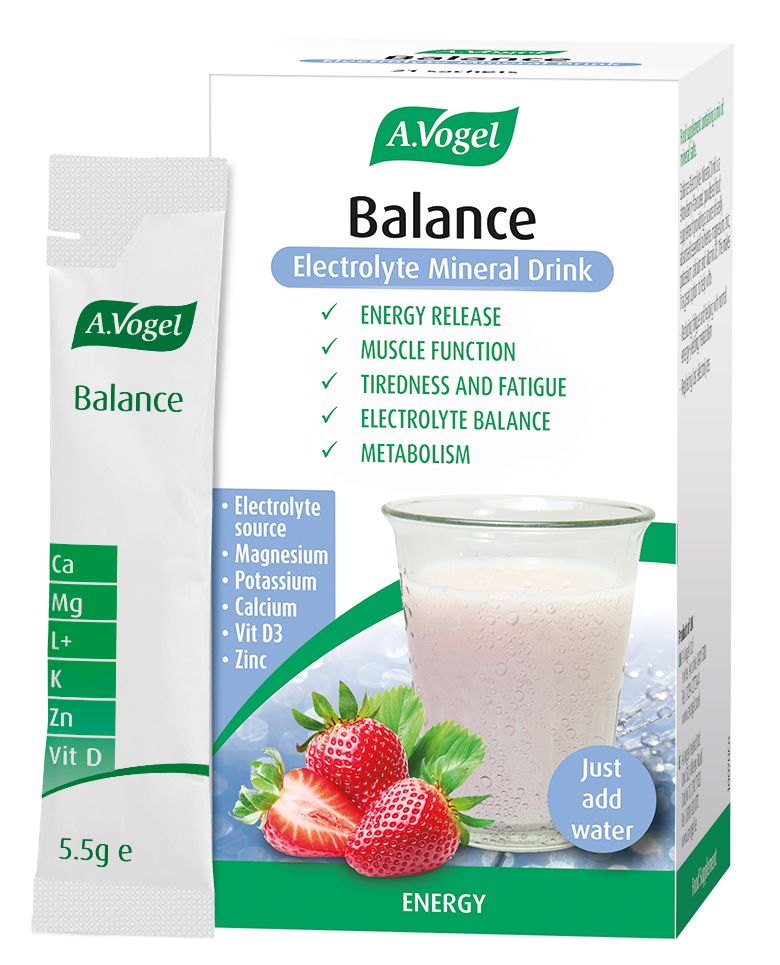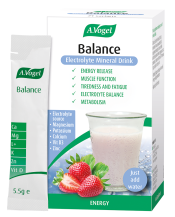What foods can you eat to increase vitamin D intake?
Vitamin D is quite unique because, unlike some other vitamins and minerals, it is classed as a 'pro-hormone'. This means the body is able to create vitamin D itself when conditions are just right. It is thought, for example, that the body manufactures up to 90% of its vitamin D stores from sunlight, which means we rely on diet for around 10% of our intake.
During the winter months, when sunshine can be in short supply, it becomes even more important that we eat plenty of foods rich in vitamin D. Some options include:
- Oily fish
- Products fortified with vitamin D
- Almond milk
- Red meat
- Mushrooms
- Egg yolk
- Cheese.
Read on to discover more about how much vitamin D these foods contain, as well as some simple recipes that will help you include more of them in your diet.
How much vitamin D do we need?
As guidelines on vitamin D intake have recently changed, there can be a little bit of confusion as to how much we need on a daily basis.
Prior to 2016, the recommended daily vitamin D intake for those aged 19-65 was 5μg (200IU). On the other hand, it was suggested that children, elderly people and pregnant women aimed for 10μg (400IU) a day.
In 2016, however, the Scientific Advisory Committee on Nutrition (SACN) reviewed its evidence on vitamin D and health.1 As a result of this research, it is now recommended that everyone over the age of 1 year should have 10μg (400IU) of vitamin D daily.
1. Oily fish
Oily fish including salmon, mackerel, tuna, sardines and herring have some of the highest vitamin D quantities of any food. A small fillet of salmon (around 155g), for example, contains roughly 815IU of vitamin D.
As oily fish is such a good source of vitamin D, a fish oil supplement can also be used to top up levels. The NHS recommends that everyone in the UK should consider taking a vitamin D supplement, particularly during the winter months when it's difficult to get enough vitamin D from sunshine and diet alone. Those at higher risk of vitamin D deficiency and children, however, may be required to take a supplement all year round.
Easy to make fish recipes:

2. Products fortified with vitamin D
The likes of butter, some fruit juice and some cereals are now fortified with vitamin D to help keep levels topped up. In 2011, for example, one of the UK's best-known cereal producers, Kellogg's, announced that they were fortifying cereals with extra vitamin D. In 2018 they increased the vitamin D quantity in their cereals further in response to "chronic low levels of this essential vitamin in the UK".2
This is evidenced by a National Diet and Nutrition Survey conducted in 2014 which found 1 in 5 Brits were deficient in vitamin D.3 Part of this could be down to the declining popularity of foods including sardines and herring which were eaten more frequently in years gone by.
Unfortunately, here in the UK our fresh milk isn't generally fortified with vitamin D as it is in countries such as the USA and Canada, so we should get via other means. However, if you live outside the UK, this is another way to add to your vitamin D intake.
3. Almond milk
To produce almond milk, nuts are soaked in water, blended and then strained. At this point they can then be fortified with vitamin D, plus other ingredients are occasionally added such as salt or honey for added flavour.
Almond milk also has the benefit that it is suitable for vegetarians and vegans. There are very few vegan sources of vitamin D so this group more or less have to rely on fortified foods or supplements to get enough. This is unless, of course, they get excellent all-year-round sun exposure (and have good liver and kidney function to help with absorption).
Easy to make recipes using almond milk:
4. Red meat
For those whose diets will allow it, red meat, offal and liver can provide additional vitamin D. One 25g steak, for example, contains around 15 IU of vitamin D, whilst 100g of braised beef ribs contains approximately 27IU.
However, too much red meat may interfere with our digestion, so it is important that you don't overload on this food. It is recommended we eat no more than 70g of red meat each day and no more than 1.5mg of liver (and liver paté) a day.

5. Mushrooms
Mushrooms are another vegetarian and vegan source of vitamin D. Unusually, the quantity of vitamin D in mushrooms increases when they are exposed to UV light.4
Button mushrooms are perhaps the most popular variety, but don't forget that the likes of shitake mushrooms also contain vitamin D.
Easy to make recipes using mushrooms:
6. Egg yolk
One large egg yolk contains around 37IU of vitamin D whilst a whole cup of egg yolks holds 530 IU. This indicates that, of all the foods on this list, egg yolks are one of the most abundant in vitamin D, weight for weight, that is.
Egg yolks can be cooked into tasty meals like omelettes but I wouldn't throw away any of the whites if you do this. Egg whites are a good source of protein and we wouldn't want to miss out on this so make use of the complete egg instead.
7. Cheese
There is roughly 24IU of vitamin D in a 100g portion of cheddar, ricotta, blue cheese and goat's cheese. This occurs naturally in each variety and so cheese does not need to be fortified with vitamin D, as is the case with some other dairy products. Naturally-occuring, food-state nutrients are always best in my book!
The recommended portion size for hard cheese is 30g (about the size of a small matchbox), so make sure you are sticking to this next time you are preparing a cheesy meal or snack!
Easy to make recipes using cheese:

Why is vitamin D so important?
As vitamin D is classed as a hormone in its active form, it has a number of important roles. Some of these include:
- Calcium absorption
- Bone mineralisation (alongside parathyroid hormone (PTH) and phosphate) to help maintain health of bones and teeth
- Immune regulation
- Supporting brain health and nerve transmission
- Supporting mood.
To help keep vitamin D levels steady, and therefore avoid the troublesome symptoms associated with a deficiency as listed above, a supplement can also come in useful. This should be in addition to eating vitamin D-rich foods, of course, as well as getting out in the sunshine where possible.
Our Balance Mineral Drink offers one means of topping up your vitamin D intake as each sachet contains 5IU. This sensible dose is in addition to other essential nutrients including magnesium, calcium, potassium and zinc. Together these can work well together and aid muscle health, energy and bone maintenance.
Originally written 28 August 2019 (updated 20 January 2020).
A.Vogel Balance Electrolyte Mineral Drink with Vitamin D3, Magnesium, Zinc, Potassium and Calcium.
£22.49 (21 x 5.5g sachets) In Stock









